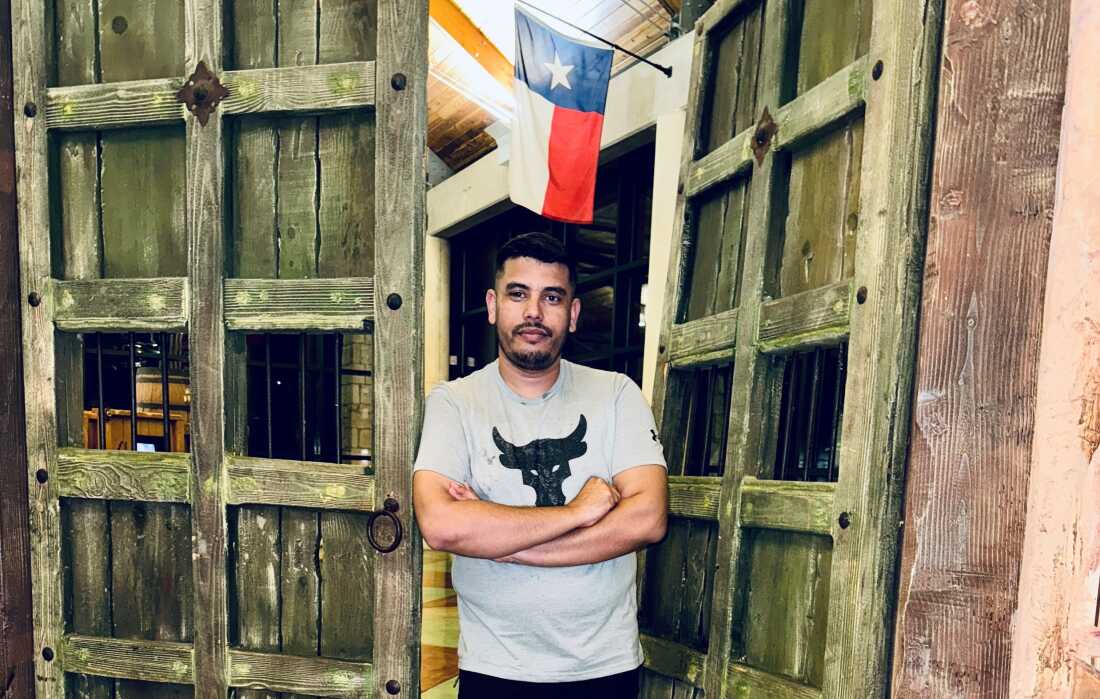Sayedyaqoob Qattali moved to Houston with his family after legally entering the United States in late 2023. Sayedyaqoob Qattali hide caption

HOUSTON - Sayedyaqoob Qattali spent years aiding U.S. forces as a security commander for the Afghan Interior Ministry in Herat province. He was caught there when Afghanistan's government fell to the Taliban in August 2021 and was unable to get U.S. help to evacuate.

"I went to Iran, and I applied for Brazil, [to get a] humanitarian visa. That was just the option that was left. Then, after one year, I got the visa, humanitarian visa," Qattali said.

What happened next was an odyssey. From Brazil, he and his family went to Peru, then to Ecuador, Colombia, Panama, Costa Rica, Nicaragua, Honduras, Guatemala, and finally Mexico. Most of the time, they walked.

"In all these countries, we got ... the legal paper that [said] we can stay there," Qattali said.

When they arrived in Mexico in November of 2023, Qattali and his family used the CBP One app to apply for U.S. humanitarian parole.

"Some of [the] people ... they were waiting one, two, three months," Qattali said. "And, fortunately, we received an appointment after two days."

Qattali and his family entered the U.S. at the San Ysidro Port of Entry between Tijuana and San Diego. They came to Houston, getting relocation help from the Houston-based veterans organization Combined Arms.

Qattali speaks seven languages. He got a job as an apartment leasing agent, where his language skills enabled him to help fellow Afghans settle into the community. And he enrolled his two children in a charter school.

Everything was going well. Then, President Trump took office, and one of his first actions was to end the CBP One function for new applicants.

Initially, that wasn't a problem for Qattali, as he and his family were already settled in the U.S. and had begun applying for asylum.

"Unfortunately," he said, "we got an email ... that you have to leave. We have like seven days. After that, they're going to charge ... $900 per day."

Qattali's attorney told him not to worry, as he's protected by the asylum application process, but he's still frightened for his future.

"I have ... a threatening letter," Qattali said. "If I go back, like, 100% they're going to kill me and my family as well."

Khalil Yarzada, a former interpreter for U.S. and NATO forces, now heads a program with the Houston-based veterans group Combined Arms, which helps Afghans who aided U.S. forces to settle in the United States. Andrew Schneider hide caption

Even Afghans who have legal permanent residency in the U.S. worry what Trump's policies mean for them.

Muhammad Amiri is a former pilot trainee with the Afghan air force who found himself stranded in the United Arab Emirates when the Taliban took Kabul.

Amiri managed to get to the United States on what's known as a Special Immigrant Visa (SIV), a status for which individuals who fought and worked alongside U.S. forces in Afghanistan are eligible and which can lead to permanent legal status.

Four months ago, Amiri
